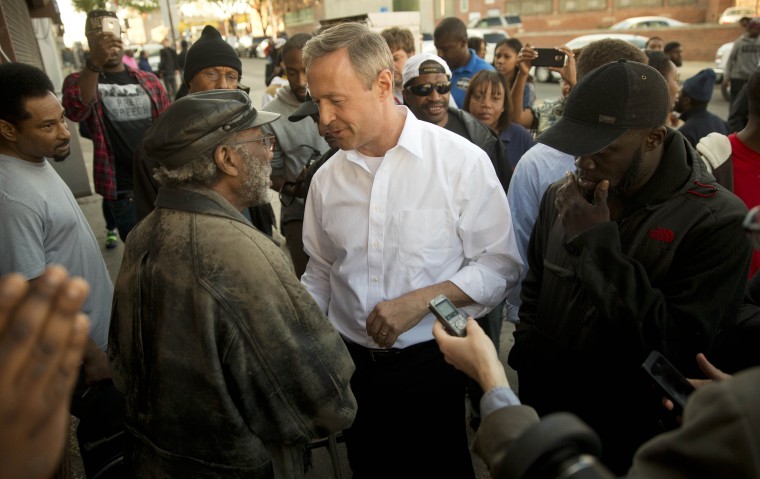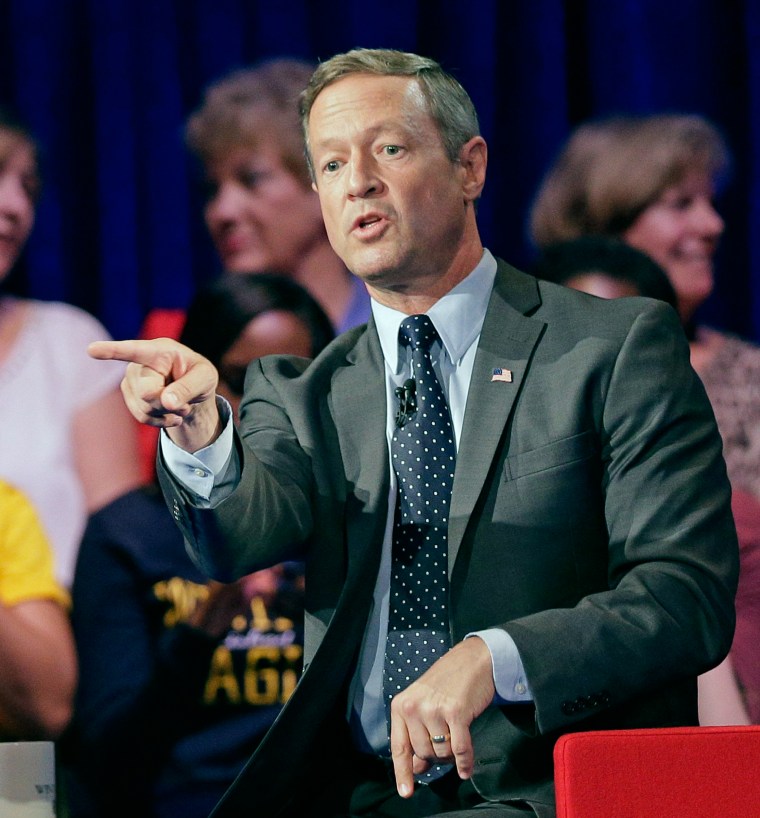Former Baltimore Mayor and Maryland Governor Martin O'Malley has one of the most detailed policy proposals on criminal justice reform, however he should be held accountable on the issues of poverty and justice that faced him while serving Maryland.

1. Why should African American voters have any confidence that you would stand for racial justice given your record in office as Governor and Mayor of Maryland?
O'Malley pushed "zero tolerance" policing and felony punishments for low level drug offenders. Given that issues around crime and violence still plague the city of Baltimore, how can he argue that his policies worked long term?
2. Was systemic poverty a top priority during your time as Mayor?
O'Malley served as Mayor from 1999 to 2007.
Over 80 percent of students attending Baltimore public schools qualify for free or reduced price lunches. Poverty in Baltimore has disproportionately impacted African Americans for decades. In 2009, 29 percent of children in Baltimore lived in poverty.
If O'Malley wasn't able to alter the economic direction of the least fortunate in the city of Baltimore and the state of Maryland, why should voters believe he could advance the economic prosperity of the entire nation as President?
3. Would you pardon Weldon Angelos?
The case of Angelos is a study in overcriminalization. Angelos is serving 55 years in prison for selling about $1,000 worth of marijuana because of mandatory sentencing. Even the judge in his case spoke out against the sentence but was forced to apply the mandatory penalty.
Taxpayers will spend $1.5 million on Angelos' incarceration if he stays in jail until he's 80. Would O'Malley pardon him?
4. As President, would you end Pentagon Program 1033, which gives billions in free military weapons to civilian police in American cities?
Even though some have argued the weapons would be vital for major cities that could be a target of terrorists, many point out that they are more likely to be used against citizens during civil unrest as in the case of Ferguson. Would O'Malley end, not just modify, the program?
5. Would you urge the Department of Justice to implement the Death in Custody Reporting Law, signed by President Obama in December 2014?
The Death in Custody law mandates that a department make a record of basic information regarding a death in custody and report the info to the Department of Justice. Will you ask for vigorous implementation of the Death in Custody law?
The relatively new law is currently not being vigorously enforced. Attorney General Loretta Lynch said Washington should not "reach down" to local police to force them to count deaths in custody, during an interview with NBC's Chuck Todd in October 2015.
